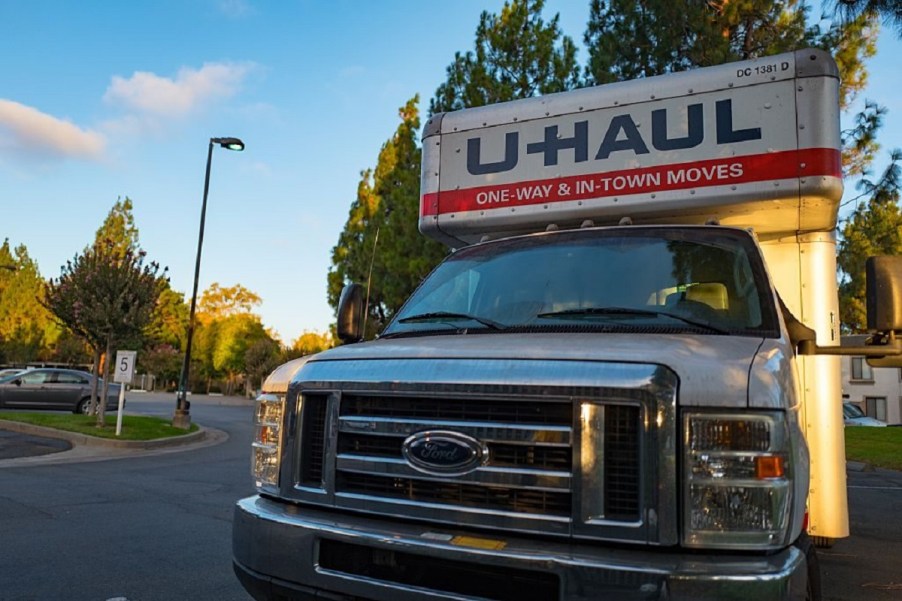
Here’s Why Every U-Haul Truck Has Arizona Plates
At more than 20,000 locations around the country you can rent a U-Haul truck, or van, or trailer, and they come in seven different sizes. But they all have one thing in common: they are all registered in Arizona. Arizona isn’t particularly special. U-Haul’s corporate offices happen to be in Phoenix, and the company registers all of the company’s trucks there as “apportioned” vehicles. But there’s more to the story of why all U-Haul trucks have Arizona plates.
U-Haul recently got national attention

As CNN explains, interest in the issue was piqued after a recent attack in New York city. The attacker was tied to a U-Haul truck with Arizona plates. That started a lot of people asking, “Why do they all have Arizona plates?”
U-Haul trucks are “apportionable vehicles.”
They are commercial vehicles with a license plate that was issued in accordance with the International Registration Plan.
U-Haul rents super-convenient box trucks, pickups, trailers. You can be drive them state-to-state. Some people even prefer to rent a U-Haul over a standard car from the airport.
What is the International Registration Plan?

You can learn everything about apportioning your own truck for commercial use at www.irponline.org.
Years ago, it wasn’t uncommon to see commercial trucks and semis with dozens of license plates from multiple states. Can you imagine waiting in that many DMV lines to register your truck? It was awful. So, multiple states and some Canadian provinces all banded together to allow commercial drivers to pay one fee in one state that they all share. That’s why all U-Hauls have Arizona plates.
The IRP is a reciprocity agreement among the states, the District of Columbia, and provinces of Canada. The agreement allows commercial carriers to pay one fee but drive anywhere. But not Hawaii.
The IRP is super clever if you drive in multiple states, and why all U-Hauls have Arizona Plates

According to the Oklahoma Corporation Commission, which has a good explanation of “apportioned.”
“Apportioned means the registration fees for the vehicle are divided up among the states and provinces through which the vehicle travels or within which the vehicle travels. The operator of a commercial motor vehicle bearing an apportioned tag is required to carry a valid cab card inside the vehicle to reflect valid registration. The cab card displays vehicle-specific information, lists each state or province within which the vehicle may operate, and lists the registered weight for each state or province.”
One card in your glovebox gets you a registration in 49 states, Washington D.C., and some Canadian provinces. It’s not cheap, but it certainly beats sitting in 49 MVD offices.
RELATED: U-Haul Ran out of Moving Trucks to Get People out of California


